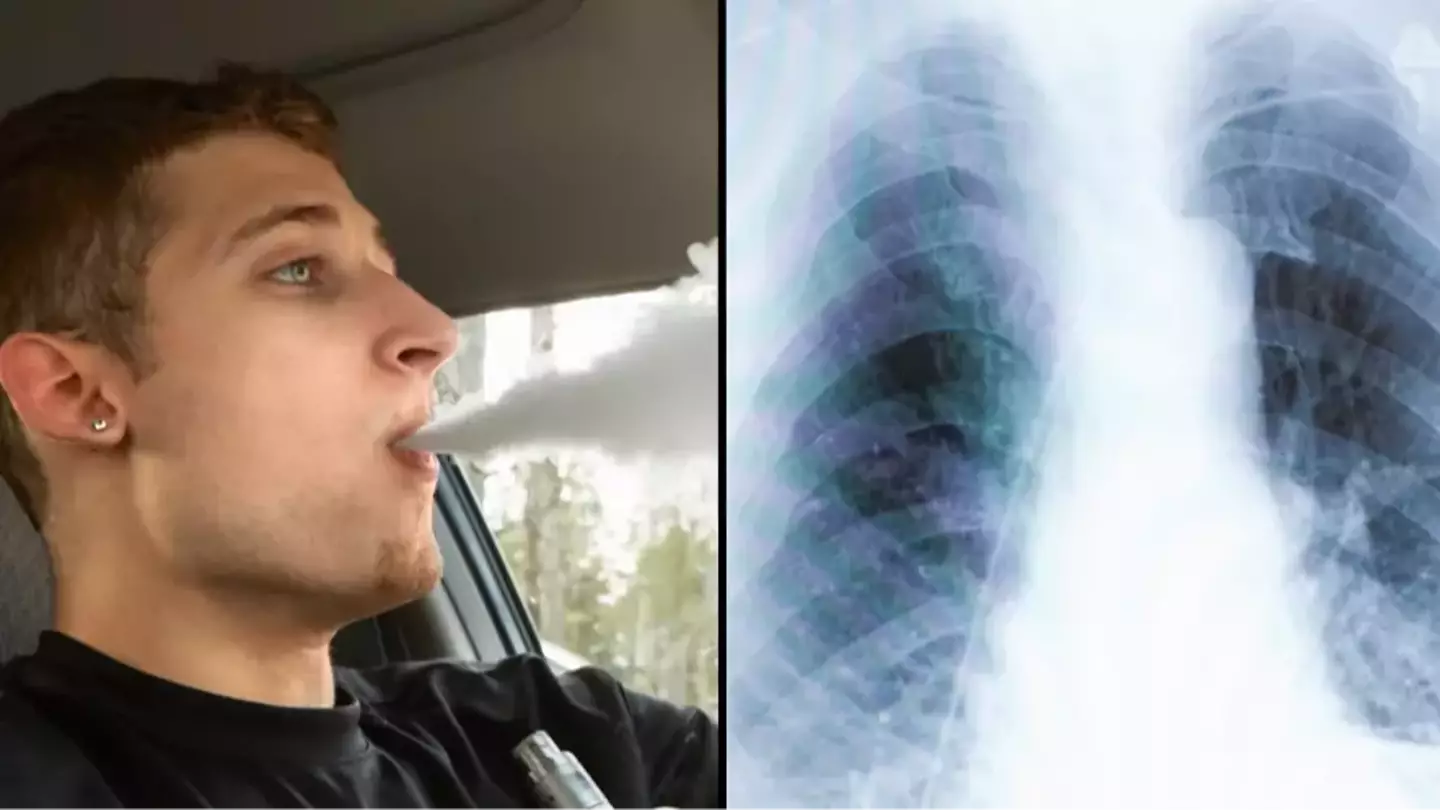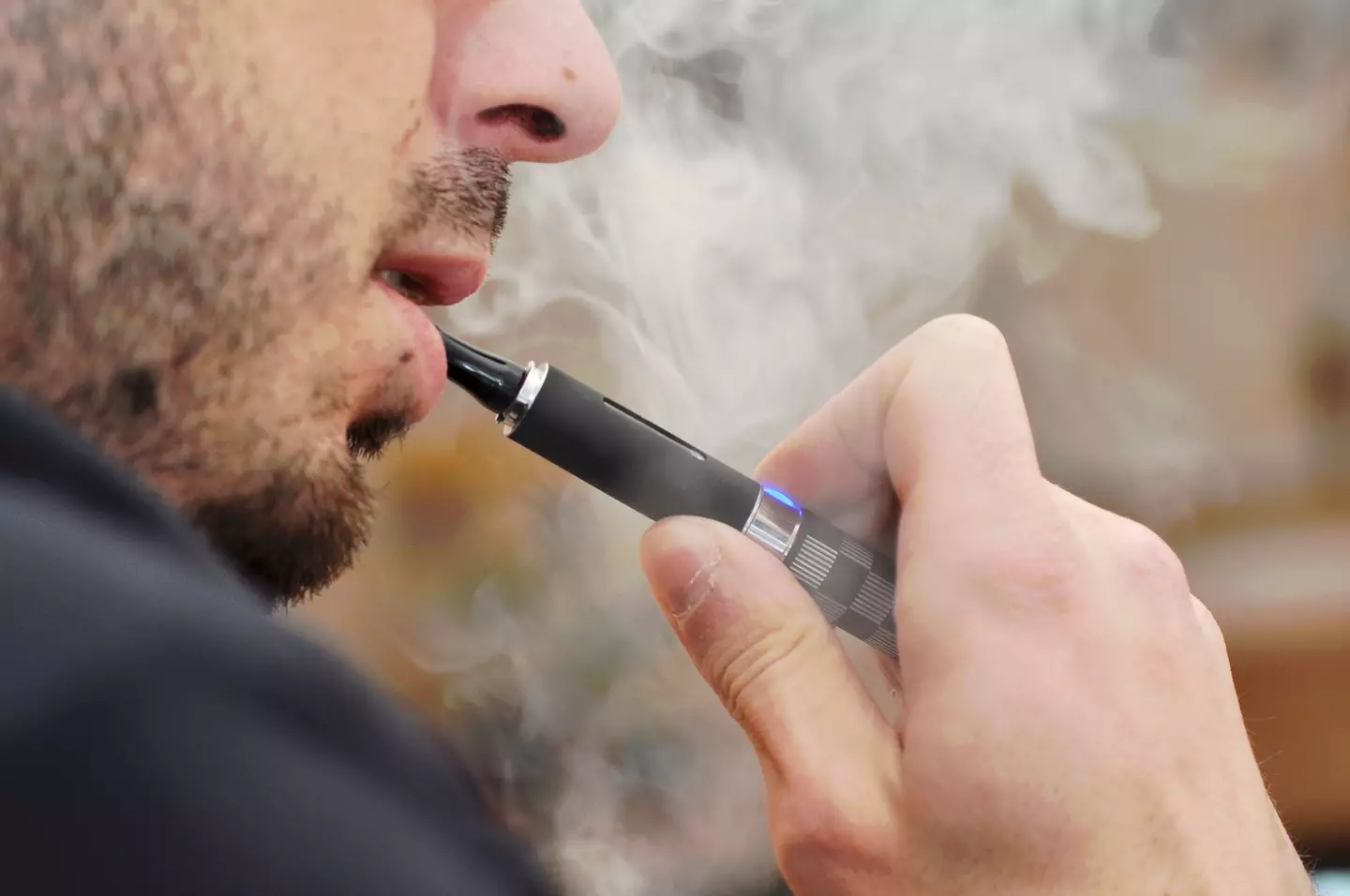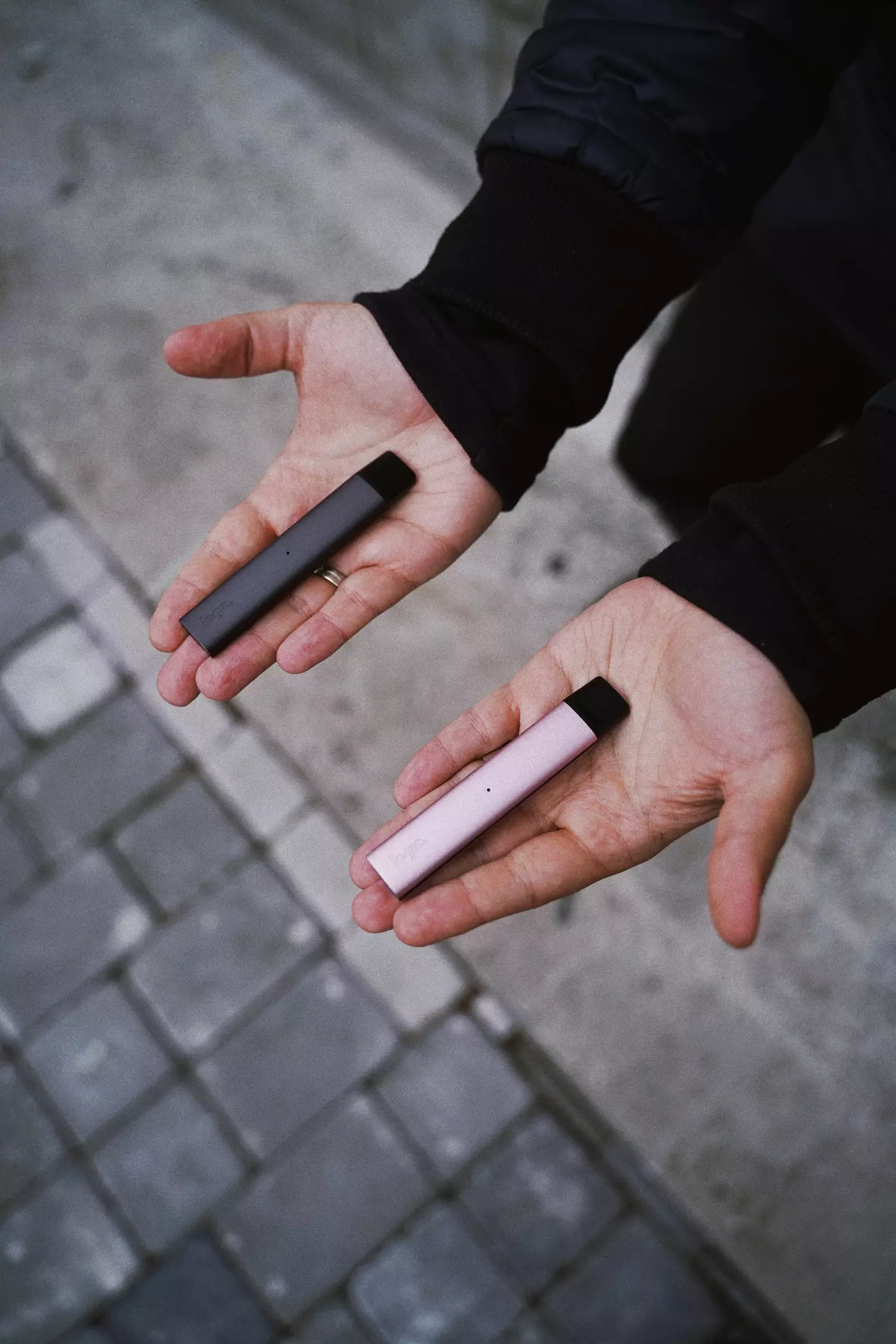
Now that UK ministers are getting ready to ban single-use vapes - you may want to know exactly what happens to your body when you kick the habit.
Following a series of calls from public waste campaigners, paediatricians and councils, disposable vapes could now be made illegal on health and environmental grounds as of next week.
You may have picked up the brightly-coloured, cute-looking little bars that taste like fruit in a bid to give up smoking or simply just for fun, but a slew of evidence suggests vaping is a little more damaging than we initially thought.
Advert
So, now might be the time to ditch the e-cigarettes for good.
However, if the idea of not sucking in clouds of pineapple air makes you grab around for your vape in anxiety, maybe hearing about what happens to your body when you give up vaping will help you go at least a day or two without it.
Although plenty of studies have shown that using vapes is better than smoking cigarettes, they still contain a number of chemicals and, of course, nicotine that can impact your health in the long run.
"Nicotine vaping is substantially less harmful than smoking," the NHS explains. "It's also one of the most effective tools for quitting smoking.
"Vaping is not recommended for non-smokers and young people because it is not completely harmless."
Thankfully, according to the experts, your body starts recovering pretty damn quick after quitting.

In fact, Nikola Djordjevic MD – project manager at Med Alert Help – told The Healthy that even after just 20 minutes, 'your heart rate returns to normal, your blood pressure drops, and your circulation starts to normalise'.
Your breathing may also improve, with Caleb Backe, a certified health and wellness expert for Maple Holistics, stating: "When you quit vaping, you should find that your breathing becomes less laboured and your airflow is clearer."
And if that weren't incredible enough, apparently your risk of heart disease falls within just 24 hours.
The outlet pointed to a 2018 study published in the American Journal of Preventive Medicine which showed that people who smoked e-cigarettes nearly doubled their heart attack risk when compared with non-smokers.
But fret not, as Djordjevic went on to say: "After just one day, your heart attack risk starts to decrease."
She explained that this is 'thanks to the lowering of blood pressure, rising blood oxygen levels, and reducing the negative influence on cholesterol levels and the formation of blood clots'.

After one month, the nicotine will be well out of your system – this takes around three days – and your lungs will start to recover.
Again, although vaping isn't as damaging to the lungs as regular cigarettes, it still involves breathing in chemicals and can therefore make breathing more difficult or make existing conditions worse.
It's yet another reason why kicking the habit may be worth doing sooner rather than later.
"After one month, your lung capacity improves," added Djordjevic. "There’s noticeably less shortness of breath and coughing.
"After nine months, lung health improves significantly thanks to the renewal of microscopic hair-like structures inside the lungs that help push out mucus and fight infections."
And after one year? Your risk of heart disease will have halved, according to the doctor.
She went on to outline the potential benefits after 10 to 15 years, stating: "After a decade, lung cancer risk is reduced by 50 percent, as well as the risk of pancreatic, mouth, and throat cancer.

"After 15 years, your risk of developing coronary heart disease becomes the same as a nonsmoker’s. The same goes for the risk of developing pancreatic cancer."
One of the major downsides of quitting is, of course, withdrawal symptoms, which will be more noticeable if you're vaping liquids with high nicotine content.
You may experience a variety of symptoms, such as cravings, trouble sleeping, difficulty concentrating, feeling restless, irritability, increased hunger and headaches.
Djordjevic said these will hit a peak on day three, 'and gradually decrease during the following three to four weeks'.
She added: "So it will take around a month to break the habit."
However, with the right strategy and with health benefits in mind, there's no reason why you can't quit vaping for good, one less puff at a time.
Topics: Health, Vaping, Mental Health, Science, World News, Crime, UK News, Politics